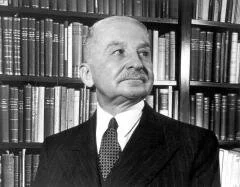Keynesianism
Keynesianism
“Practical men, who believe themselves to be quite exempt from any intellectual influences, are usually the slaves of some defunct economist.” -Keynes, The General Theory of Employment, Interest, and Money, 1936.[1]
On August 15, 1971, President Richard Nixon defaulted on US gold payments. On a January 4, 1971 interview with Howard Smith, he had said, “I am now a Keynesian in economics.”[2]
John Maynard Keynes was an early 20th century British economist (1883-1946). He was a young man while Great Britain was the strongest empire on earth. However, his life spanned the decline of the empire in both world wars up to the year before the loss of India.
His economic theories influenced both British politicians and their colonial cousins in the USA.[3]
The theory he popularized can be summarized as found in his book, The General Theory,[4]
“On the other hand, a decline in income due to a decline in the level of employment, if it goes far, may even cause consumption to exceed income not only by some individuals and institutions using up the financial reserves which they have accumulated in better times, but also by the government, which will be liable, willingly or unwillingly, to run into a budgetary deficit or will provide unemployment relief; for example, out of borrowed money… Otherwise a fall in employment and income, once started, might proceed to extreme lengths.”- Keynes, General Theory, Ch 8, part III, pg 67
in other words, Keynes theory is that the government will go into debt to boost demand so that fewer jobs (and thus votes) are lost during a recession. In good times, the taxes will be raised from the increased income of voters to pay off the debt.
Of course, the USA has instead continued to go into debt even in periods of recovery over the course of the 20th and early 21st centuries. Politicians are always tempted to solve the voters’ problems with someone else’s money. Otherwise, they may lose their election.
More debt means more risk so interest rates on loans should increase as a country or person goes deeper into debt.
However, if the government can create a central bank to print money to buy the debt, then interest rates do not need to be high because the central bank would be the lender of last resort. Printing money does have consequences. Hence, the USA used to be on a gold standard but since 1971 has only been using paper money resulting in increasing prices (inflation).
"Lenin was certainly right. There is no subtler, no surer means of overturning the existing basis of society than to debauch the currency. The process engages all the hidden forces of economic law on the side of destruction, and does it in a manner which not one man in a million is able to diagnose." -John Maynard Keynes, The Economic Consequences of the Peace, Chapter VI pg 236
48 years after 1971, the USA are $23 trillion in debt collectively (up 5,700% from $398 billion in 1971), not counting separate State, local, and personal debt. Interest rates are being suppressed by the Federal Reserve printing money to buy Federal debt.[5]
“Similarly, the Federal Reserve can increase liquidity by buying government bonds, decreasing the federal funds rate because banks have excess liquidity for trade.“ -Saint Louis Federal Reserve Economic Data[6]
On November 18, 2019, the Chairman of the Federal Reserve had an unplanned meeting with President Donald Trump. The press release from the Federal Reserve states,[7]
“Finally, Chair Powell said that he and his colleagues on the Federal Open Market Committee will set monetary policy, as required by law, to support maximum employment and stable prices and will make those decisions based solely on careful, objective and non-political analysis.”
President Donald Trump tweeted out one the same day,[8]
“Just finished a very good & cordial meeting at the White House with Jay Powell of the Federal Reserve. Everything was discussed including interest rates, negative interest, low inflation, easing, Dollar strength & its effect on manufacturing, trade with China, E.U. & others, etc.”
Both Chairman Powell and President Trump believe that raising interest rates will cause financial bubbles to crash and cause unemployment. They stated their beliefs more clearly in the past.
"Believe me: We're in a bubble right now. And the only thing that looks good is the stock market- but if you raise interest rates even a little bit, that's going to come crashing down. We are in a big, fat, ugly bubble. And we better be awfully careful.” -Trump in a presidential candidate debate with Hillary Clinton, Sept 2016.
“I think we are actually at a point of encouraging risk-taking, and that should give us pause. Investors really do understand now that we will be there to prevent serious losses. It is not that it is easy for them to make money but that they have every incentive to take more risk, and they are doing so. Meanwhile, we look like we are blowing a fixed-income duration bubble right across the credit spectrum that will result in big losses when rates come up down the road. You can almost say that that is our strategy.” -Jerome Powell, Chairman of the Federal Reserve, then member of the Board of Governors, Oct 2012 Federal Open Market Committee Meeting.
Therefore, the Federal Reserve will continue to buy debt and suppress interest rates and kick the can down the road. No politician wants to be blamed for a recession/depression.
“But the long run is a misleading guide to current affairs. In the long run we are all dead. Economists set themselves too easy, too useless a task if in tempestuous seasons they can only tell us that when the storm is long past the ocean is flat again.“ -Keynes, A Tract on Monetary Reform, p. 80[9]
Unfortunately for today, we are living in the long run that Keynes spoke about 80 years ago. That is why central banks and nations have been printing money to prop up asset bubbles while simultaneously buying physical gold ever since the Great Recession.[10]
“Today is already the tomorrow which the bad economist yesterday urged us to ignore.” -Henry Hazlitt, Economics in One Lesson, Pg 5
Central banks are pumping up the markets while preparing themselves for the dump that will come when interest rates rise in response to risky debt or when nations and peoples lose faith in the credit of the dollar. In both cases, the demand for gold (and silver) will increase in the long run.[11]
So don’t worry about the long run. Just hedge against long run Keynesian economic policies.
[1] https://cas2.umkc.edu/economics/people/facultypages/kregel/courses/econ645/winter2011/generaltheory.pdf Located in the last paragraph of The General Theory.
[2] https://www.nytimes.com/1971/01/07/archives/nixon-reportedly-says-he-is-now-a-keynesian.html
[3] http://news.bbc.co.uk/2/hi/uk_news/magazine/7682887.stm
[4] https://cas2.umkc.edu/economics/people/facultypages/kregel/courses/econ645/winter2011/generaltheory.pdf
[5] https://www.hamiltonmobley.com/blog/iorr-ioer-and-ffr
[6] https://fred.stlouisfed.org/series/fedfunds
[7] https://www.federalreserve.gov/newsevents/pressreleases/other20191118a.htm
[8] https://twitter.com/realDonaldTrump/status/1196458467982270464
[9] https://mises.org/power-market/trickery-behind-keyness-flippant-remark-about-long-run
[10] https://www.cnbc.com/2019/01/31/world-gold-council-central-banks-buy-most-gold-since-1967-.html


